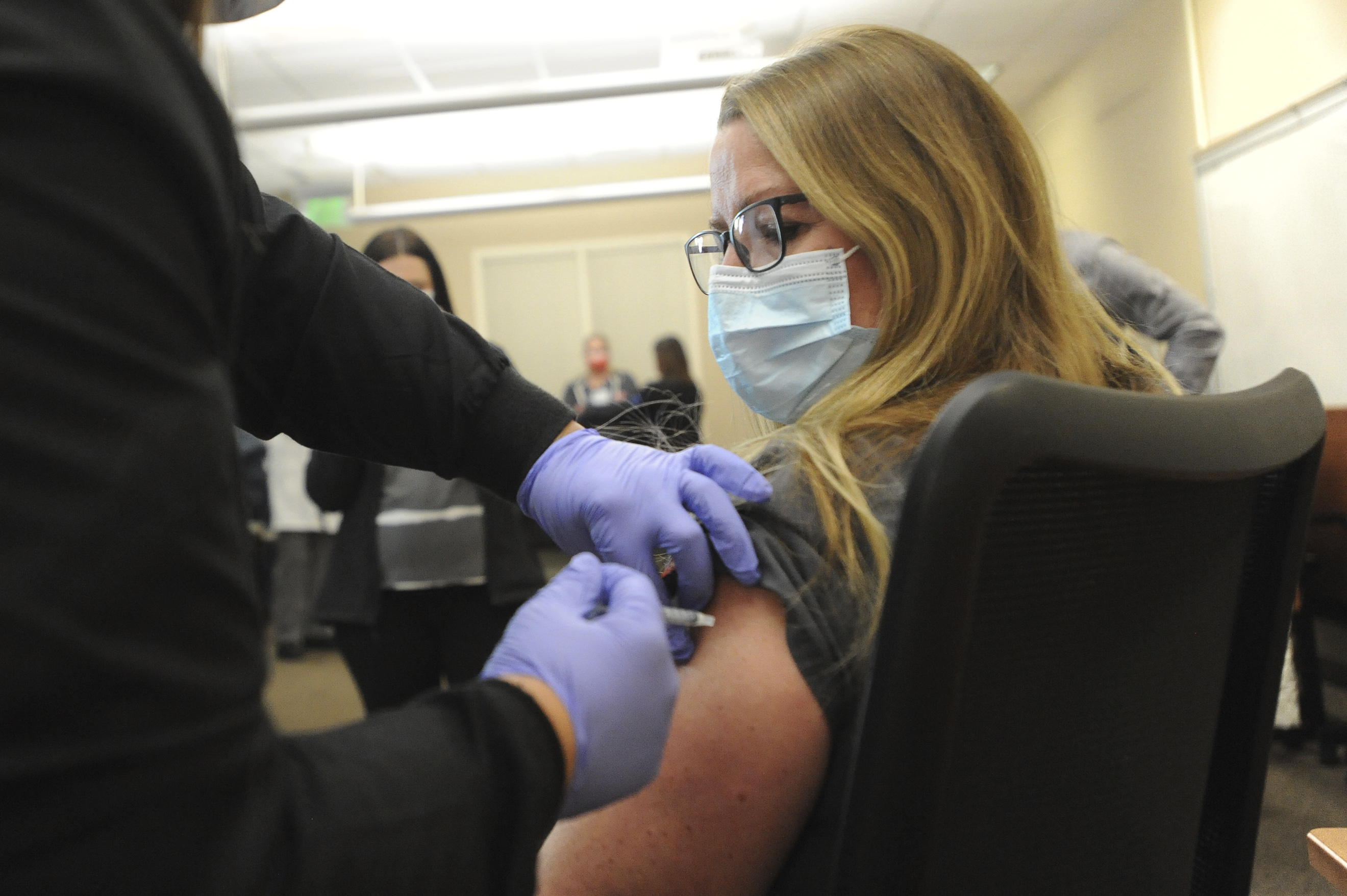
The Centers for Disease Control and Prevention (CDC) says everyone 6 months and older should get an updated 2024-2025 COVID-19 vaccine.

People with compromised immune systems may receive additional doses, depending on their vaccination history. More information is available at the CDC’s website .
Vaccines are administered at retail pharmacies, including Walgreens , Walmart and CVS , clinics and other locations, such as doctor’s offices. Use the federal government’s website Vaccines.gov to search for vaccination sites by ZIP code. Get the same information by texting your ZIP code to 438829 or by calling 800-232-0233. You can check with your primary care physician’s office to see if COVID-19 vaccinations are offered. If you are a veteran, the Department of Veterans Affairs offers COVID-19 vaccinations at VA facilities. Sign up online or call 800-827-1000 to make an appointment.
Find more information about COVID-19 vaccines at the Vaccinate Idaho web page or by calling your public health district . You can check your state vaccine records through Docket , a mobile app that lets you access Idaho's Immunization Reminder Information System (IRIS), or by filing a records request with the state’s Department of Health and Welfare. If your records aren’t in IRIS, ask your medical provider if they can provide you with a copy.
The federal government no longer covers the cost of the vaccines, but most people with Medicare, Medicaid or private insurance will not have to pay out of pocket for the shot.
If you are uninsured, contact your local or state public health department or a nearby federally qualified health center about vaccination opportunities.
Children 18 and younger may qualify to receive no-cost or low-cost vaccines through the federal Vaccines for Children (VFC) Program .
Some vaccination sites ask for proof of identity or eligibility. Bring a driver’s license or other state-issued ID that shows your name, age and state residency, along with your health insurance card.
The CDC no longer distributes vaccine cards, and they are not required to receive a vaccine . If you’ve lost your vaccine card, you can call the site where you were vaccinated to request a new one or a copy of your vaccination record.
It’s not uncommon to experience mild to moderate side effects after getting vaccinated, such as soreness in the arm, headache, fatigue, muscle and joint pain, nausea, fever or chills — but these are temporary “and normal signs that your body is building protection,” the CDC says.
A small number of vaccine recipients have experienced adverse reactions to the shots.
According to the CDC, it is safe to receive the flu vaccine and updated COVID-19 vaccines simultaneously, although you are a little more likely to experience side effects, such as a headache and fatigue. Adults 75 or older (and those 60 to 74 with certain underlying health conditions) who are encouraged to get the RSV vaccine may receive that at the same time as the others, but some health experts suggest spacing them out. If you had the RSV vaccine last year, you don’t need another one this year.
Contact your health care provider for more information.
The U.S. government no longer distributes COVID-19 vaccines to long-term care facilities. That means nursing homes, assisted living facilities and other long-term care settings are responsible for coordinating COVID-19 vaccination programs for their residents and staff. Most long-term care facilities have partnerships with pharmacies or health departments to provide vaccines for flu, COVID-19 and other illnesses. Long-term care facilities that receive Medicare and/or Medicaid dollars are required by federal law to educate residents, their representatives and staff about COVID-19 vaccines and offer a COVID-19 vaccine to residents, resident representatives and staff.
All vaccines reduce the risk of COVID-19 infections and are highly effective at preventing severe illness and death from the disease. No vaccine is 100 percent effective, and infections can still occur postvaccination.
Be aware that scammers often purport to offer COVID-19 vaccines and treatments and try to charge for them. The AARP Fraud Watch Network is tracking the latest scams.
Idaho residents who believe they’ve encountered a COVID-19 scam can report it to the U.S. Department of Health and Human Services Office of Inspector General by calling 800-447-8477 or submitting a complaint online .
Editor's note: This guide was last published July 30, 2024, and has been updated with new information.
Grace Dickinson is a writer, editor and producer for AARP who covers federal and state policy. She previously wrote for The Philadelphia Inquirer. Her work has also appeared on sites including HuffPost and Eater.